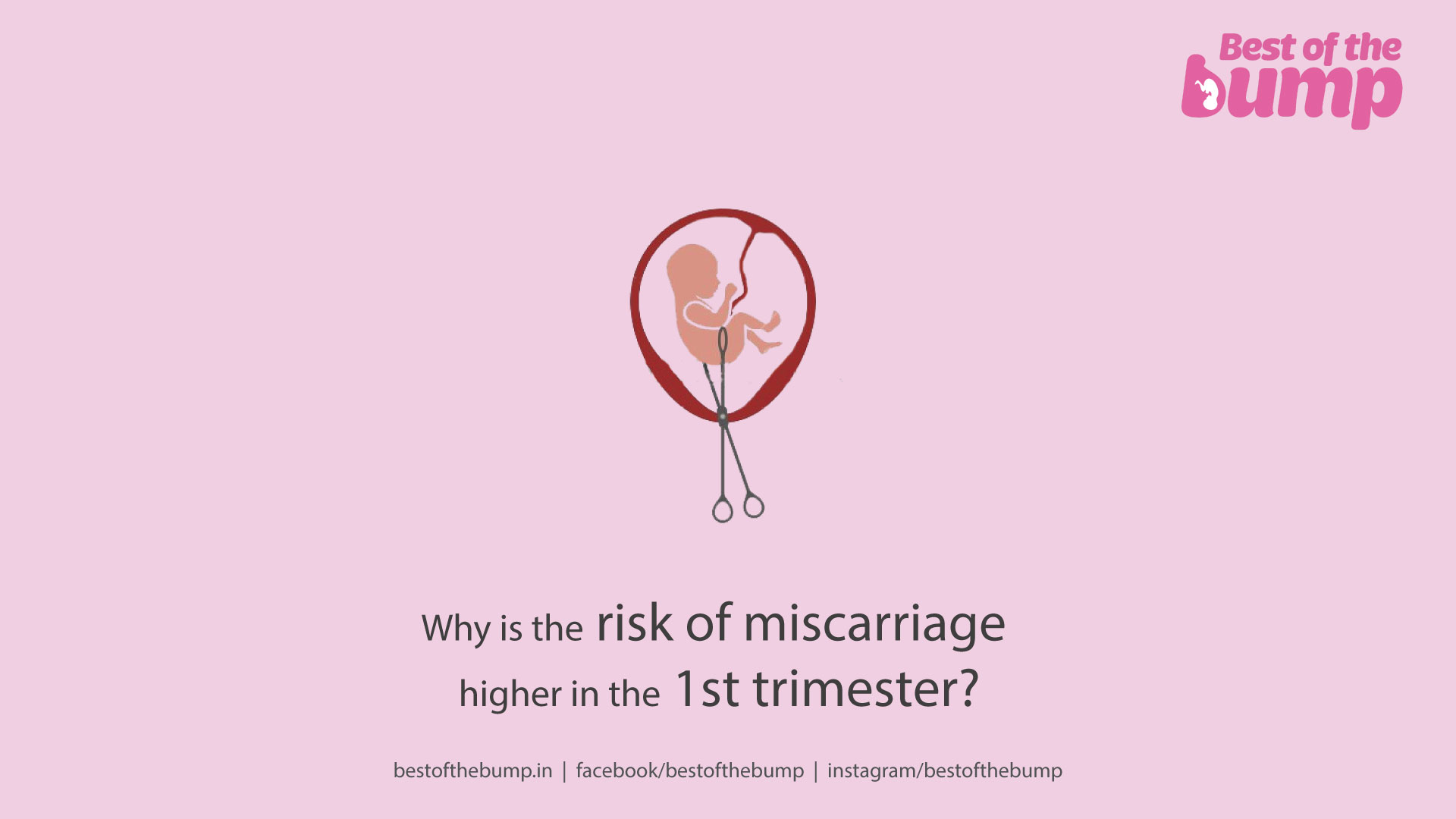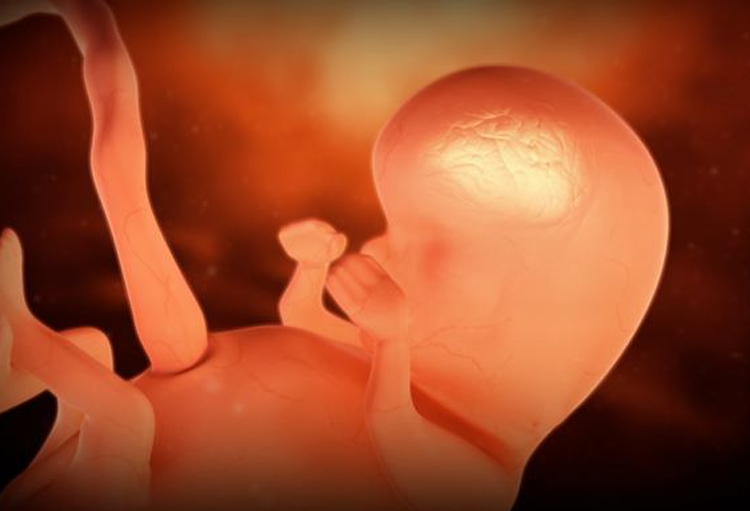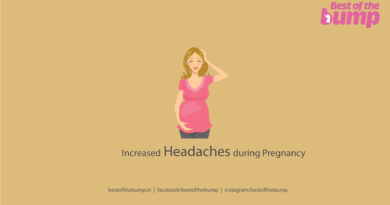Why is the risk of miscarriage higher in the 1st trimester?
Miscarriage is the loss of pregnancy or loss of a baby in the early semester of gravidity. The fact is on average 15 percent of known pregnancies end in miscarriage, and greater than 80 percent take place in the first 20 weeks.
Causes of this traumatic incident may include:
- Infection
- Hormonal issues
- Muscle problem
- Uterine irregularities
- Incompetent cervix (the cervix begins to widen and open too early, in the middle of pregnancy, without signs of pain or labour)
- Habit of smoking, alcohol consumption, or using illegal drugs
- The immune system, including lupus not in order.
Symptoms – include Bleeding or Abdominal pain.
Quite clear from the fact, its probability of occurrence is maximum in the first trimester i.e. first week to twelfth week (first 3 months)
Miscarriage is a devastating event that involves the loss of pregnancy or a baby in the early stages. This article aims to provide a comprehensive understanding of miscarriage, including its causes, symptoms, and available treatment options.
What is Miscarriage?
Definition and Statistics
Miscarriage, also known as spontaneous abortion, refers to the natural termination of pregnancy before the 20th week. It is a relatively common occurrence, as approximately 15 percent of known pregnancies end in miscarriage. The majority of miscarriages, around 80 percent, occur within the first 12 weeks of pregnancy.
Causes of Miscarriage
Infection
Infections, such as bacterial or viral infections, can increase the risk of miscarriage. Common infections that may contribute to miscarriage include urinary tract infections, sexually transmitted infections, and certain systemic infections.
Hormonal Issues
Hormonal imbalances, particularly in hormones essential for maintaining pregnancy like progesterone, can lead to miscarriage. Conditions such as polycystic ovary syndrome (PCOS) or thyroid disorders may disrupt hormonal balance and increase the risk of miscarriage.
Muscle Problems
Issues with the muscles of the uterus can interfere with the implantation of the fertilized egg or the growth and development of the fetus, leading to miscarriage. Uterine fibroids, which are non-cancerous growths in the uterus, and uterine abnormalities or structural defects can contribute to miscarriage.
Uterine Irregularities
Certain conditions, such as endometriosis or adenomyosis, can affect the lining of the uterus and increase the risk of miscarriage. These conditions can lead to an inhospitable environment for implantation or interfere with the nourishment and development of the embryo.
Incompetent Cervix
An incompetent cervix occurs when the cervix begins to dilate and open too early during pregnancy, typically in the second trimester, without signs of pain or labor. This premature opening of the cervix can result in miscarriage or preterm birth.
Lifestyle Factors
Habits like smoking, excessive alcohol consumption, and using illegal drugs have been linked to an increased risk of miscarriage. These substances can negatively affect fetal development and increase the chances of pregnancy loss.
Immune System Disorders
Certain autoimmune disorders, such as systemic lupus erythematosus (SLE), can increase the risk of miscarriage. These disorders cause the immune system to attack the developing fetus as if it were a foreign body.
Symptoms of Miscarriage
Bleeding
Vaginal bleeding is a common symptom of miscarriage. It can range from light spotting to heavy bleeding, sometimes accompanied by clots. However, not all bleeding during pregnancy indicates a miscarriage, as some women may experience bleeding without pregnancy loss.
Abdominal Pain
Abdominal pain or cramping, similar to menstrual cramps, is another symptom of miscarriage. The intensity of pain can vary, and it may be accompanied by back pain or pelvic pressure.
Early Miscarriage and Chromosomal Aberrations
Chromosomal Abnormalities in the Fertilized Egg
Between 50 and 70 percent of early miscarriages are attributed to chromosomal abnormalities in the fertilized egg. These abnormalities occur when there is an incorrect number of chromosomes in the egg or sperm, leading to an underdeveloped fertilized egg.
Underdeveloped Fertilized Egg
In some cases, the fertilized egg implants in the uterus, and the placenta and gestational sac begin to develop, but the resulting embryo either ceases to develop very early or fails to form at all. This condition is known as a blighted ovum or early pregnancy non-success.
Probability of Miscarriage at Different Stages of Pregnancy
The probability of miscarriage is highest during the first trimester, particularly in the first 12 weeks of pregnancy. As the pregnancy progresses and reaches the stage where a normal heartbeat can be detected, the risk of miscarriage decreases. Symptoms like bleeding or cramps felt after the confirmation of a healthy heartbeat further reduce the probability of miscarriage.
Treatment Options for Miscarriage
Natural Miscarriage Process
In many cases, the body naturally expels the contents of the uterus without the need for medical intervention. This process is similar to having a heavy period, and it typically occurs within a few weeks following the miscarriage.
Medication-Based Treatment
In some situations, healthcare providers may prescribe medications to help facilitate the completion of the miscarriage process. These medications can help expel the pregnancy tissue and reduce the risk of infection.
Surgical Intervention
If the body does not naturally expel the pregnancy tissue or if complications arise, surgical intervention may be necessary. Procedures such as dilation and curettage (D&C) or suction aspiration can be performed to remove the remaining pregnancy tissue from the uterus.
Coping with Miscarriage
Emotional Support and Counseling
Miscarriage can have a significant emotional impact, and it is essential to seek support from loved ones, support groups, or professional counseling to navigate the grieving process.
Supportive Care and Self-Care Practices
Engaging in self-care activities such as getting enough rest, eating a balanced diet, and practicing stress-reducing techniques can help promote emotional and physical healing following a miscarriage.
Miscarriage is a distressing experience for individuals and couples, and understanding its causes, symptoms, and treatment options can help in coping with the emotional and physical aspects of this loss. It is essential to seek medical guidance and emotional support during this challenging time. Remember, you are not alone, and there are resources available to assist you in healing and moving forward.
References
- American College of Obstetricians and Gynecologists, How Your Fetus Grows During Pregnancy, August 2020.
- American College of Obstetricians and Gynecologists, Morning Sickness: Nausea and Vomiting of Pregnancy, May 2020.
- American College of Obstetricians and Gynecologists, Weight Gain During Pregnancy, 2020.
- American College of Obstetricians and Gynecologists, Early Pregnancy Loss, February 2020.
- American College of Obstetricians and Gynecologists, Prenatal Genetic Screening Tests, October 2020.
- Mayo Clinic, Symptoms of Pregnancy: What Happens First, May 2019.




